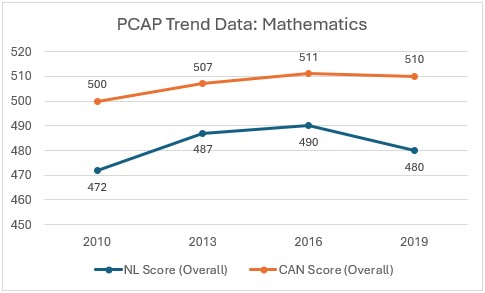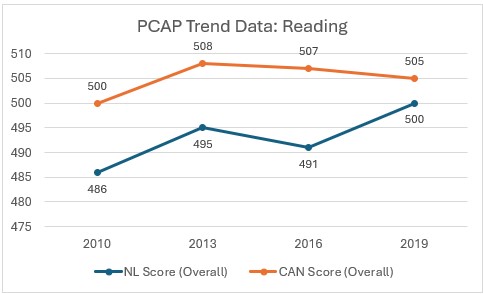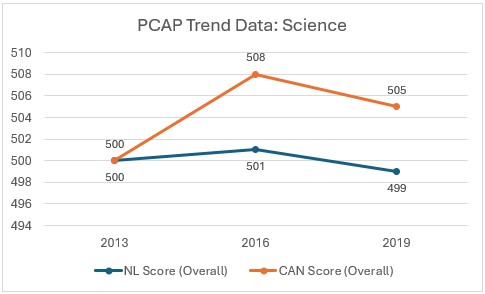
PCAP is a national assessment that evaluates the knowledge and skills of Grade 8 students in Canada in reading, mathematics, and science. It was conducted every three years up to 2023 and is now administered every four years. The next PCAP assessment will take place in 2027.
The data from PCAP helps provinces and territories evaluate and refine their curricula and assessment tools, ensuring students across Canada achieve similar learning outcomes at the same stage in their education.
PCAP focuses on three key areas: reading, mathematics, and science. One subject is chosen as the major domain in each cycle, with the other two as minor domains. This rotating focus provides in-depth insights into each area over time.

The goals of PCAP include:
- Informing educational policy to enhance learning approaches
- Focusing on core subjects while allowing flexibility to assess additional areas
- Minimizing testing burden on schools through streamlined administration
- Gathering contextual data from students, teachers, and administrators
- Helping jurisdictions compare national and international data to improve local assessments
In Newfoundland and Labrador, the Department of Education and Early Childhood Development (EECD) uses PCAP data to help guide program development and resource allocation. Accurate data ensures that decisions are based on real needs.
For example, if the 2023 PCAP shows NL students underperforming in mathematics, EECD may respond by adjusting programs, reassigning or hiring staff, or revising curriculum content. However, if students didn't take the assessment seriously, the data could be misleading.
That''s why it's important for students to give their best effort-even though PCAP does not count toward their grades-because the results influence future policies and resources.
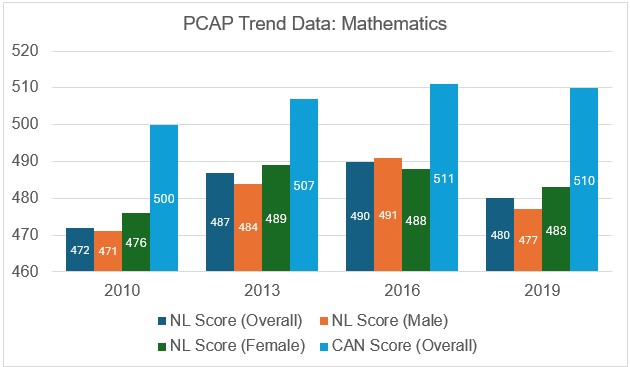
A four-year cycle allows enough time to evaluate whether education policies are having an effect. Shorter intervals may not capture meaningful changes, while longer intervals may delay the response to performance issues.
Grade 8 students are selected because they are at a transitional point in their education. The sample includes students from diverse backgrounds and abilities. PCAP is aligned with the international PISA assessment: students who wrote PCAP in 2023 will write PISA in 2025, and both assessments focus on science. This alignment helps track student development over time.
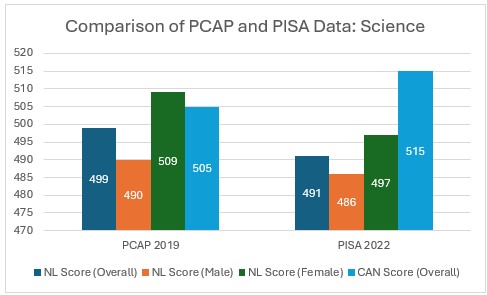
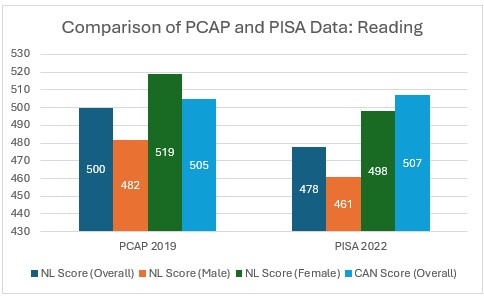
Note: Due to COVID-19, the 2021 PISA was postponed to 2022.
In 2019, mathematics was the major domain. The results for Newfoundland and Labrador are illustrated in the graphics below.
